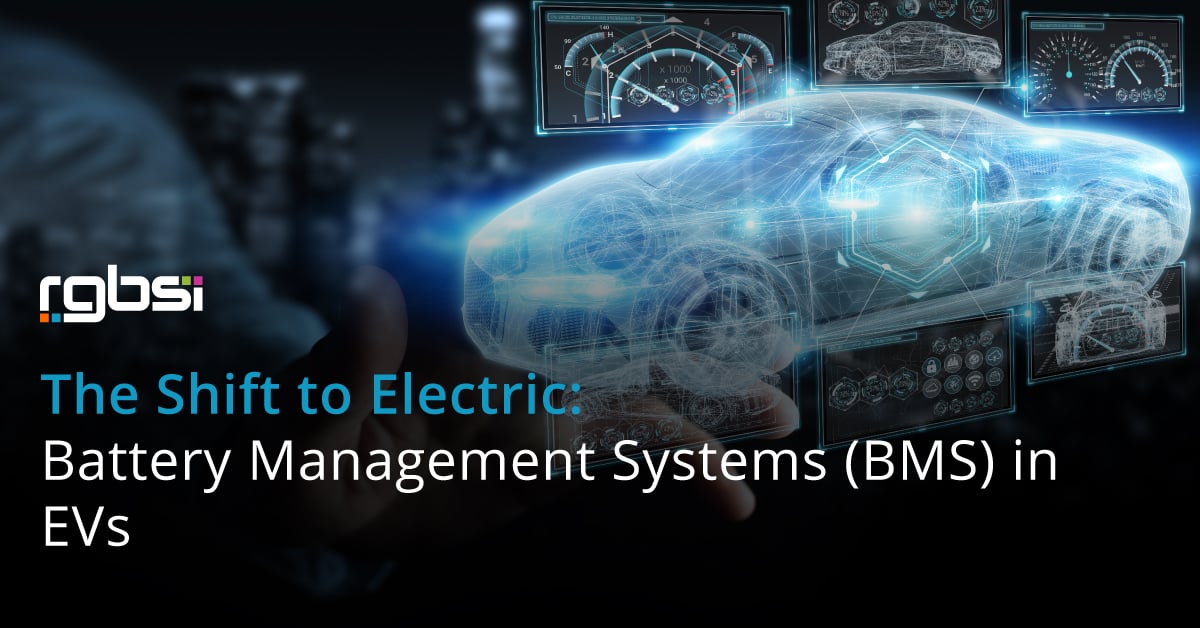
Battery Management Systems (BMS) play a fundamental role in the electrification of transportation systems. Leveraging battery technologies is vital to optimizing power and sustaining safe and reliable designs of electric vehicles (EVs).
The Shift from Internal Combustion Engines to Battery Technologies: Why is it needed?
Battery Management Systems (BMS) monitor the parameters of rechargeable lithium-ion batteries and their cells. In other words, BMS reduces the risks associated with harsh environmental conditions to optimize battery performance. Cutting-edge battery technologies have a high charge density and reduced weight. Not only can it be carried effortlessly everywhere, but it also promotes stability providing sufficient power.
Battery management systems are an embedded system that monitors the voltage, current, and other circuit board components. It aims to make sure that the EV is operational and not overcharged. For instance, EVs that run on high voltage can face the risks of catching fire when they exceed the optimum energy density. BMS performs constant monitoring to ensure that vehicles always operate under safe conditions.
Anatomy of BMS Solution in Vehicle Electrification
A battery management system’s anatomy makes sure that the battery profile is balanced to optimize battery performance. It consists of the following:
- An array of Lithium-ion battery
- Inverter: employs AC traction motors to accelerate EVs
To give you a clear understanding of how a battery management system work, here are its primary functions:
Battery Cell Monitoring
It is imperative to deploy BMS on EVs to perform a thorough battery cell monitoring procedure and optimize battery performance. It measures aspects of the battery, including the current, voltage, and temperature, in real-time. This monitoring procedure can help the drivers stay updated on their batteries’ current conditions and when specific issues arise.
Here are essential parts of the battery monitoring systems that handle monitoring:
- Cell Monitoring Controller (CMC): CMC is responsible for measuring the voltage and temperature data to transfer its data to the BMC.
- Battery Monitoring Controller (BMC): BMC makes sure that the battery is under optimal conditions and passes analytics to the ECU.
- Electronic Control Unit (ECU): ECU creates the data summary of the battery diagnostics.
State of Charge (SOC)
The BMS provides an accurate insight regarding the depth of the vehicle and its battery life expectancy. SOC measures the temperature and location of the cells in the battery to estimate the battery performance. It is important to note that one of the main culprits behind the battery’s deterioration is overcharging or undercharging.
Battery Cell Equalization
Another essential function of the battery management system is battery cell equalization. This equalization ensures that you don’t reach the maximum voltage and risk your vehicle for overheating. Additionally, it makes sure that all of the cells integrated into a battery have equal voltages. Otherwise, a slight difference can affect the entire battery pack compromising its efficiency.
How Does BMS Help the Smart Grid Balance Demand?
With a tremendous increase in lithium battery systems, there is a growing demand for acquiring a prominent source of power. As battery technology grows exponentially with the future of mobility, it is equally important to implement a robust battery management system to help balance demand of the smart grid. BMS is a valuable investment to obtain accurate data on your battery performance. In this way, drivers can have the confidence that their batteries can sustain a few hours of driving without breaking down along the way. It can also help them determine pit stops to take to top-up and recharge. Ultimately, this keeps EVs well-equipped with mechanisms that control their battery’s reliability, operation, and safety.
About RGBSI
At RGBSI, we deliver total workforce management, engineering, quality lifecycle management, and IT solutions that provide strategic partnership for organizations of all sizes.
Engineering Solutions
As an organization of engineering experts, we understand the importance of modernization. By pairing modern technology with design expertise, we elevate fundamental engineering principles to accommodate growing product complexity requirements. We work with clients to unlock the full potential of their products and enable future innovation. Learn more about our automation and digital engineering services.












